
Free Webinar on Welcoming & the Arts from Arts Midwest, Wed, Sep 14, 2022 3:00 PM – 4:00 PM CDT
|
|
|
|
|

|
|
|
|
|
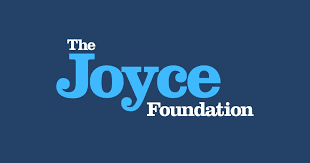
GRANT OPPORTUNITY ($75,000): 2023 JOYCE AWARDS APPLICATIONS NOW OPEN
Awarded annually, the Joyce Awards support the creation of new works by artists of color to foster more culturally vibrant, equitable, and sustainable communities. In 2023, The Joyce Foundation will grant six Joyce Awards across visual, performing, and multidisciplinary arts to support new collaborations between artists of color and leading arts, cultural, and community-based organizations in the Great Lakes. Each $75,000 grant enables the creation and presentation of a new work that engages and builds community, with at least $25,000 of each grant awarded directly to the commissioned artist, while the collaborating commissioning organization receives at most $50,000 to use towards compensation of staff time, production costs, materials, participant stipends, and other expenses.
The deadline for pre-registration is September 7, 2022, with Letters of Inquiry due on September 12, 2022 at 11:59pm CDT.
For more details, eligibility criteria and other FAQs, please visit the Joyce Foundation website at [https://www.joycefdn.org/joyce-awards] or email Culture Program Director Mia Khimm at [email protected].
Who can apply?
Applications must be submitted by the commissioning organization, including questions for the artist. Applications must reflect a new collaborative commission between an artist of color and an arts or community-based organization located in Chicago, Cleveland, Detroit, Indianapolis, Milwaukee, or Minneapolis-St. Paul. The artists can be living and practicing anywhere in the world, provided they are proposing a collaboration with an organization located in one of the above Great Lakes cities. Please see the full Eligibility Criteria & Guidelines and FAQs.
Joyce Award Eligibility
Artists
• Joyce Awards applications may be submitted by artists living and practicing
anywhere in the world, provided that they are proposing a collaboration with an
arts or community organization located in the metropolitan statistical areas of
one of six Great Lakes cities: Chicago, Cleveland, Detroit, Indianapolis,
Milwaukee, or Minneapolis-St. Paul.
• There is no restriction in regard to art discipline or medium.
• Artists must be commissioned by an unrelated entity – no self-commissions or
commissions by an arts organization or company founded or run by the artist.
Commissioned artists may be related to the commissioning organization, currently
or in the past, in a time-limited capacity, such as a residency, teaching artist, or
board member.
• As Joyce Awards support the commission of new works, an artist’s proposed
project should not have moved past the ideation stage.
• Although works need to be new, collaborations between artists and
commissioning organizations need not be new. Joyce Foundation welcomes
applications from artists and organizations who have worked together before.
• However, artists who have received a Joyce Award in the past are not eligible
to apply again as a commissioned artist. In addition, organizations that have
received a Joyce Award in the past may re-apply if proposing a commission
with an artist who has never received a Joyce Award in the past.
• Hallmarks of past Joyce Award recipients include artists whose work:
• Demonstrates artistic excellence as well as new thinking or approaches
while being firmly grounded in the history and evolution of an art
form and the discourse which surrounds it;
• Is as artistically and intellectually relevant to the current moment and
historical legacies in the place of commission as it is rigorous;
• Engages with and is informed by the stories and concerns of
diverse communities, including communities of color;
• Creates opportunities for community access and learning from the
ideation stage through the culminating production; and
• Will have a culminating and tangible program, product or process.
Arts and Community-based Organizations
• Arts or community-based organizations located in the metropolitan statistical
area (MSA) of one of the six cities where Joyce Awards are made (i.e. Chicago,
Cleveland, Detroit, Indianapolis, Milwaukee, or Minneapolis-St. Paul) may submit
an application.
• The most compelling applications have come from organizations that:
• Evidence the capacity to support an artist(s) through the
commission and presentation of an original art work;
• Are most likely to use the proposed project and collaboration with
the prospective artist to build upon and deepen connections with
surrounding communities, existing and potential institutional
partners and local civic leadership;
• Display the ability to harness additional funds as needed to ensure a
project’s completion within a 12- to 18-month timeframe (with projects
beginning no earlier than June 1, 2023); and
• Can design and execute a robust community learning, engagement
plan, and audience development strategy that will ensure the
community’s awareness of and access to the project from origination
through completion.
• Demonstrate a commitment to advancing racial equity in its work.
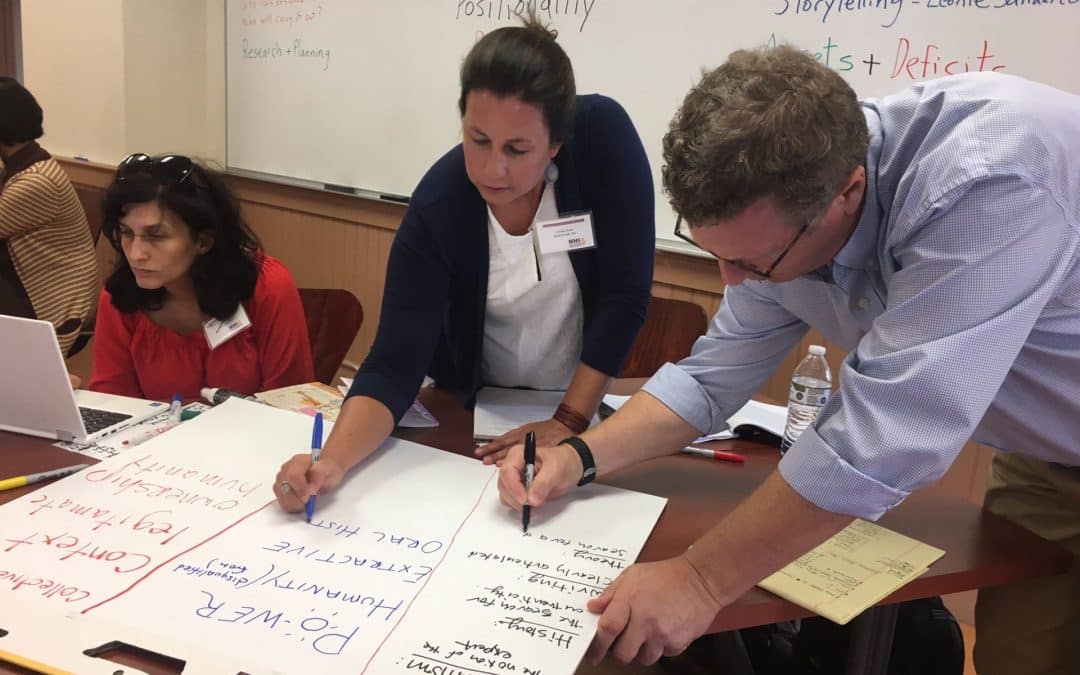
The Creative Placemaking Advanced Leadership Certificate grows and nurtures entrepreneurial, collaborative and culturally competent leaders. It is the kind of leadership that can most effectively enhance places through local arts and cultural activities. It is the right type of leadership for these uncertain and challenging times. The most effective leaders are both deep thinkers and strong communicators. The Certificate will help you master the knowledge and craft of creative placemaking leadership.
This low-residency program is designed for busy community-based professionals and social practice artists anywhere in the world. You can complete it in eight to 10 months.
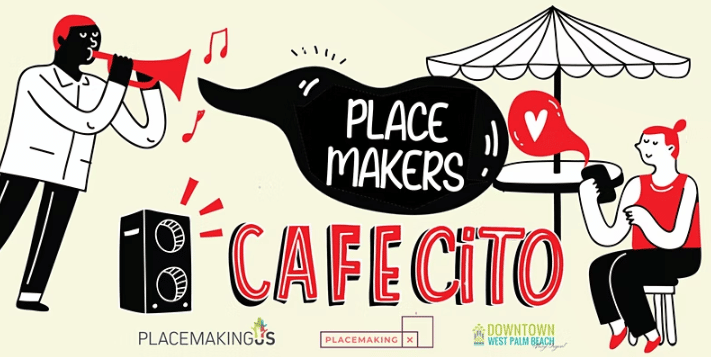
Themed Cafecito Placemaking Chats, 4th Monday of the Month
Placemakers, here’s a monthly opportunity to come together and refill each others’ tanks!
Bring your coffee, tea, or other drink, and your creative mind for free form discussion kicked-off by the following themes…
We’ll close-out each session with self-reflection: accepting what we must and finding our power to move things forward.
Inspired and Co-hosted by Sherryl Muriente, Initiator of the PlacemakingFL network and Director of Urban Placemaking, West Palm Beach Downtown Development Authority
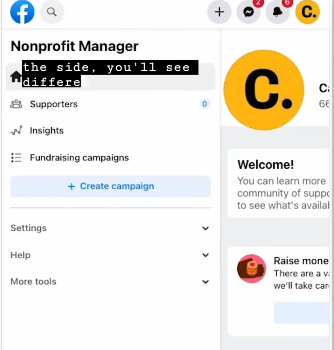
Facebook recently changed the tools you can use to manage your nonprofit on their platform. This short video from Candid walks you through how to use the Nonprofit Manager Dashboard:
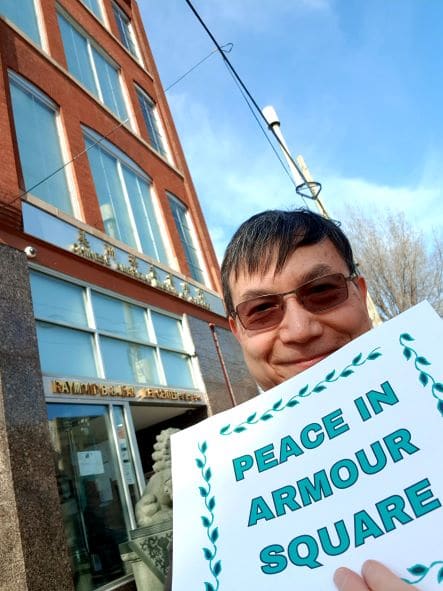
CCA Partner Member The Peace School is launching a photo campaign to celebrate the beauty of all people and cultures in the 77 Community Areas of Chicago, and they are asking their fellow Members of the Alliance for help! Their goal is to spread peace and love by getting to know and understand each other better as we support positive actions for peace. They thought of you because they want to promote people, groups and businesses that are making their neighborhood a better place to live. (That is DEFINITELY the Members of the Alliance!)
It is easy to participate! Go to a place you love in your community and take a photo with your message of peace. You’ll find details and sample photos below. Your photo will become part of the Peace in Chicago Call to Peace series on social media, featuring one Community Area each day.
Here’s an example from the Swedish American Museum of Chicago, who already submitted their photo, and Ben from the Chinese American Museum of Chicago is the cover image for this post!
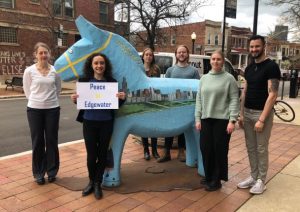
Here’s how to participate:
· Make a sign that says: Peace in [community area]
· Take a photo with the sign – here are some samples and ideas:
Celebrate something positive in your community:
· Your photo location could be on your own block or in front of a park, community garden, museum, school, public mural, community center, shop, restaurant… pick a spot in your Community Area you’d like to highlight. (This is a great way to represent your own cultural center or museum if you’d like!)
· Your photo can include one person or you can gather your family, neighbors, coworkers or members of your local organization. Please make sure that everyone in the photo gives permission for the image to be shared (including parent or guardian of children).
· Your sign can be on a piece of paper or on a large poster. It can be simple or artistic. Keep in mind that you’ll want the sign’s message to show up well in your photo.
More about Community Areas:
· Use this link for a map of Chicago’s 77 Community Areas. https://bit.ly/35Z49QW
· Type in the name of your Community Area in the search box on top left and it will take you to an enlarged map of your Community Area.
Share your photo with the Peace School:
1. Send your photo as an email attachment to: [email protected]
2. Important! Include a statement in your email giving us permission to share the photo on social media.
3. Feel free to send us your Instagram and FACEBOOK @ handle so we can tag you when it’s time for your photo to be posted in the series. Then please share!
4. You can also send us @ handles of other places in your Community Area you’d like us to tag.
It would mean a lot to have you participate in this special Peace in Chicago Call to Peace as we celebrate The Peace School’s 50th Anniversary in Chicago. Email Lydia Howe with questions at [email protected]. Together, let’s plant seeds of peace in Chicago and the world.